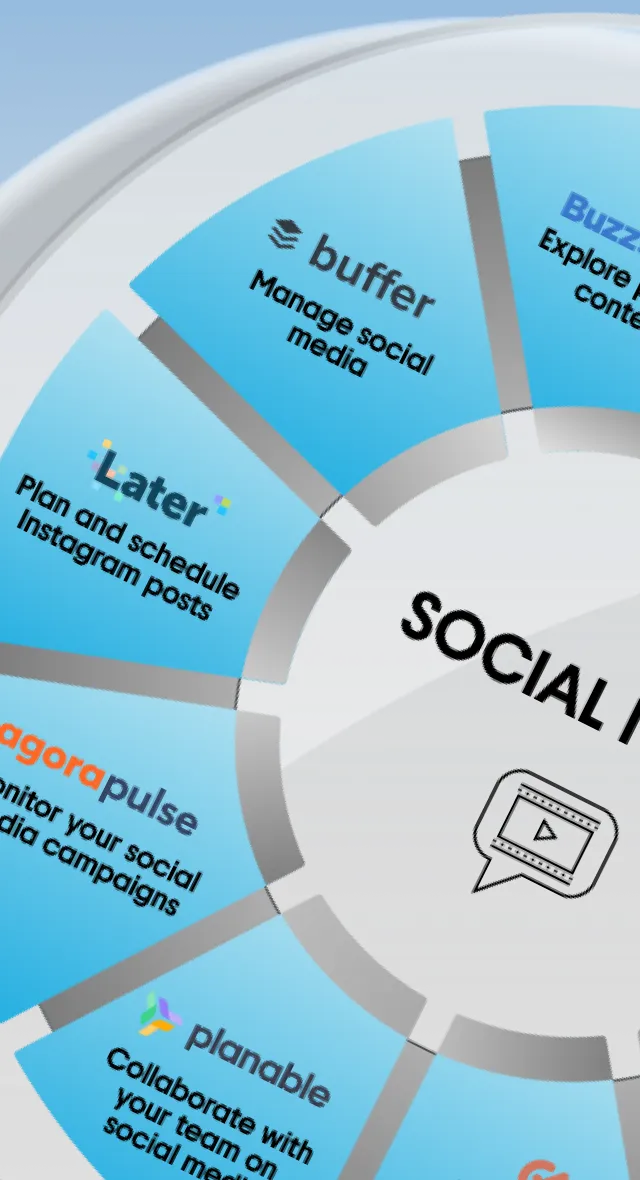Why Does Social Listening Matter? Definitions, Benefits, and Tips
The social media landscape is constantly changing, transforming faster than you’re able to notice. Working with it can be challenging, especially with the number of trending buzzwords emerging. You’ve probably heard of the term “social listening” before. But what does it actually mean? Most importantly, how can it benefit your company? We’re here to answer these burning questions!
Social listening helps you to keep an eye on online conversations related to your brand. If you want to keep up with what people are saying about your company, products, and services, and stay on top of the latest industry trends, you need a solid social listening strategy. Without it, you’re creating your marketing and social media strategies blindfolded.
What is social listening?
Social listening refers to monitoring social media platforms for mentions of your company and associated keywords. It’s more than just simply tracking mentions of your brand. Social listening includes analyzing conversations, discussions, and trends related to your company, your competitors, and your industry at large.
Social listening helps you track every direct or indirect mention related to your company on social media platforms in real time. This way, you can receive important information on how customers feel about your company, track trending content, and understand customer problems and expectations from you in the future. With a social listening strategy, you’re able to make data-driven decisions that are going to have a positive impact on your business. This knowledge may benefit everything from marketing and product planning to consumer service.
Social listening differs from social monitoring in that it’s a proactive way to monitor, analyze, and respond to online conversations. While social monitoring might be helpful for quickly addressing any negative statements or complaints, it doesn’t give you a full picture of what people are saying about your brand, competitors, and industry in general. Social listening is a more comprehensive approach that can give you a complete overview of what’s being said and provide you with valuable insights for improving strategies.
How does social listening work? Get started in 3 easy steps
1. Monitor.
Keep an eye out on multiple social media platforms for mentions of your brand, competitors, industry, and related topics and keywords. You can do this manually by frequently checking social media channels or automating the process with special software.
2. Analyze.
Examine the information you were able to gather and find ways to put it into action. Analyzing it can help you understand what customers like and dislike about your company, products, or services, and understand industry trends to determine your positioning on social media.
3. Respond.
You need to respond if you notice a single mention of your brand or a big behavioral pattern. This could be simply commenting on a satisfied consumer post or something more significant as changing your marketing strategy — in any case, you must react.
Top social listening tips
1. Listen for the right words.
The key to effective social listening is choosing the right keywords that are most relevant to your business. Keep in mind that these keywords are going to change over time. Social listening will help with discovering common words people use to talk about you. The most important keywords include the name of your company, products, and services; key people in your company; campaign names; and hashtags. Remember to check abbreviations and misspellings.
2. Listen in the right places.
Learning where your audience engages in discussion is necessary to discover what they have to say about you. You need to know where people talk about your company and how those conversations vary across different social platforms. Discussions about your company or industry on Twitter and Instagram differ significantly from those on Facebook or LinkedIn. Understanding this will help you join the conversations effectively through organic engagement and paid advertising.
3. Find search filters.
Once you’ve determined what keywords and social media platforms are crucial for your company, develop more sophisticated search tactics. Within your results, there still may be some mentions or posts that aren’t relevant. Work on refining your search filters to minimize the number of results not connected to your company.
4. Don’t jump in.
In general, people appreciate it when a company offers to help them with their difficulties. Yet, they don’t like it when a company jumps into their comments with a sales pitch. Social listening should help you find relevant information about your brand on social media platforms. You shouldn’t use it as an opportunity to start pitching your products or services right away. This way of communication with your clients on social media is more about building connections and trust that you can later turn into sales.
To wrap up
Social listening is an incredible practice as long as you know how to use it. It allows you to gain insight into what consumers think about you, your products, services, and competitors by analyzing what they say on social media platforms. Social listening can help you reach out to your audience, show interest in their opinions, and build trustful connections. This way, you can benefit your company image and establish your brand as the best choice within the industry.
Other articles you might find interesting
Brand Affinity: Definitions, Benefits, and Key Strategies
Cause Marketing: Meaning, Benefits, and Top Strategies
What Is Nostalgia Marketing and How You Can Use It to Engage Your Audience
How to Communicate Your Brand’s Stance: 20+ Cases Concerning the War in Ukraine











